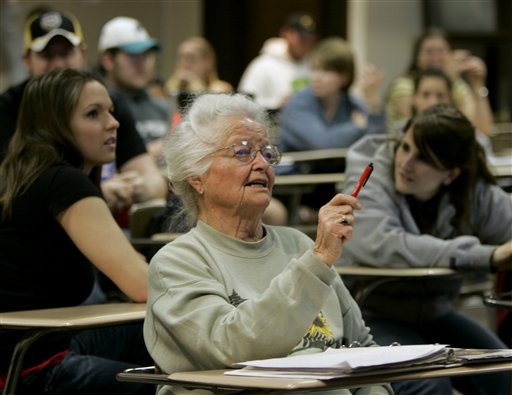Educating one’s self has no age limit because learning is always believed to be a lifelong process.
There are three main reasons why access to education has no age limit.
Firstly, the purpose of education is to stimulate the interest and the competence to advance. Success cannot be achieved without the will to win. Thomas Alva Edison discovered the electric bulb not because of his ingenuity but rather his persistence. He had to undergo 999 failures without giving up to finally succeeded in his 1000th attempt.
The argument to remove this age limit for anyone who wants to enroll in educational courses is based on the ideas of stimulating self-advancement and going beyond. There is no age limit for education; education represents a firm effort for an organization to evolve itself.
There are other dimensions that need to be taken into account, such as stimulating the spirit of the members towards achieving the organization’s goals. The removal of the age limit will be advantageous for the organization as it will create dynamism for every police officer to offer their best to the force.
Every policeman is encouraged to do their best and compete fairly because there is equal treatment. The rule of reward and punishment is valid across the board and it applies to anyone who wishes to advance through training and education.
Secondly, the objective of education is education itself. The development of education cannot be separated from its effective process of learning and teaching. It is marked by interactions between teachers who transfer knowledge to their students. There is a dynamic environment of interactions and communications.
Such a dynamic learning environment is a precondition for the development of science and the formation of modern education. The sharing of the best practices can contribute to quality as well.
A dynamic learning environment will become even livelier when every student becomes the learning source as well, thus enhancing the quality of the education. Hence, the idea to introduce the subject of best practices by accepting students from other departments and other countries and waiving the age limit for officers who want to join the course.
Education should no longer be exclusive but inclusive to widen its search for knowledge. This policy opens the opportunity for postgraduate students for ‘most of them are no longer young’ to participate actively in the course and to share knowledge for the advancement of the course itself and for the police organization as a whole. Their professional experience and knowledge constitute the basis for innovations.
Finally, education can give birth to new hopes. The philosophical consequence is that there should be no limitation on hope.
The quality of an individual is set by one’s attitude and thoughts. Putting an age limit to anyone wanting to advance, learn and broaden knowledge and enroll and pursue education is restricting his or her spirit of competence, which in itself contradicts natural selection.
Natural selection will select the fastest, strongest and fittest; that requires the spirit to triumph. A winner will never quit and a quitter will never win.
Let nature decide; there is no ‘monkey business’ in natural selection. Everybody deserves an opportunity to survive not because of age but thought, wisdom and good judgment.
